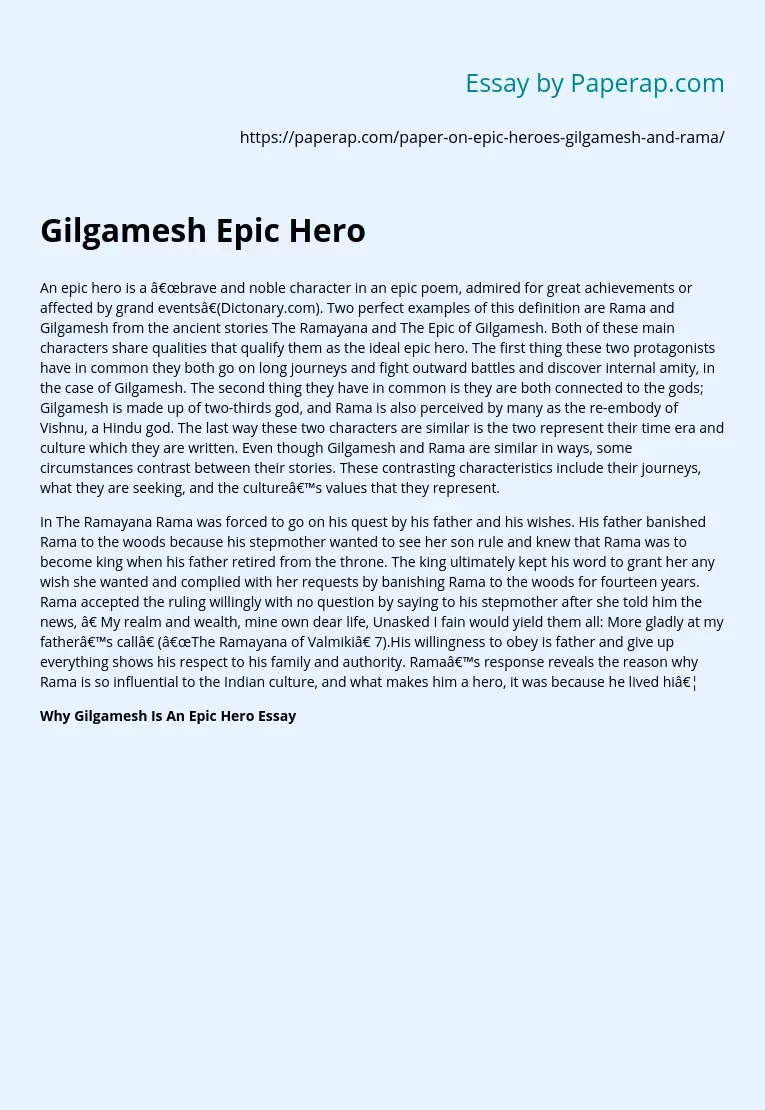Gilgamesh Epic Hero
An epic hero is a “brave and noble character in an epic poem, admired for great achievements or affected by grand events”(Dictonary.com). Two perfect examples of this definition are Rama and Gilgamesh from the ancient stories The Ramayana and The Epic of Gilgamesh. Both of these main characters share qualities that qualify them as the ideal epic hero. The first thing these two protagonists have in common they both go on long journeys and fight outward battles and discover internal amity, in the case of Gilgamesh.
The second thing they have in common is they are both connected to the gods; Gilgamesh is made up of two-thirds god, and Rama is also perceived by many as the re-embody of Vishnu, a Hindu god. The last way these two characters are similar is the two represent their time era and culture which they are written. Even though Gilgamesh and Rama are similar in ways, some circumstances contrast between their stories.
These contrasting characteristics include their journeys, what they are seeking, and the culture’s values that they represent.
In The Ramayana Rama was forced to go on his quest by his father and his wishes. His father banished Rama to the woods because his stepmother wanted to see her son rule and knew that Rama was to become king when his father retired from the throne. The king ultimately kept his word to grant her any wish she wanted and complied with her requests by banishing Rama to the woods for fourteen years.
Rama accepted the ruling willingly with no question by saying to his stepmother after she told him the news, ” My realm and wealth, mine own dear life, Unasked I fain would yield them all: More gladly at my father’s call” (“The Ramayana of Valmiki” 7).His willingness to obey is father and give up everything shows his respect to his family and authority. Rama’s response reveals the reason why Rama is so influential to the Indian culture, and what makes him a hero, it was because he lived hi…
Why Gilgamesh Is An Epic Hero Essay
Gilgamesh Epic Hero. (2019, Dec 05). Retrieved from https://paperap.com/paper-on-epic-heroes-gilgamesh-and-rama/

